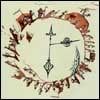Many problems of history are discussed at Chabad.org, some bigger than others. The big problem, however, has yet to be discussed. In fact, it is rarely discussed at all.
The big problem of history is, “Why is there any history at all?”
No, I don’t mean, “Why was anything recorded?” Neither do I mean, “Why did anything ever happen that should be recorded?”
What I mean in this question by “history” is what you might call the storiology of history—that history presents itself to us in the form of a story or a novel. That it seems to be composed of unique events in time that created watersheds, points beyond which there could never be a return to the previous state. It seems to have a plot, progressing towards some destiny in a series of conflict and resolution. It appears to have themes which unravel over time.
I also mean “history” in the sense of a particular theme. In telling the narrative of history, there are many themes that stand out for the modern mind: the advance of technology and science; the formation and metamorphoses of nations and empires; the development of ideas, art, music, literature and culture. But, for most of us, one theme stands beyond all others, and perhaps at the core of each of the above. That is the story of the significance of the individual within society.
This was the theme of history to which Francis Fukuyama was referring when, in 1992, he published his now classic End of History and the Last Man. Because this is the idea of history to which Hegel and those who built upon his work referred. History, in the minds of these great thinkers, is the story of humankind moving to attain a kind of equilibrium between society and the individual, one in which neither is at odds with the other, but rather complement and enrich one another. One in which society is constructed in such a way as to encourage, enhance and enrich the freedom and utmost expression of the potential of the individual, while the freedom of the individual in turn enriches the society as a whole.
To Fukuyama, this is liberal, capitalist democracy, and its resolution arrived with the fall of the Berlin Wall. To us today, it is what we are still striving to fully realize in our own societies, and hoping to see realized through the uprising of the “Arab Spring” and similar upheavals in the Far East. The question of “why is there any history at all” has become more relevant today than at any other time, because the answer itself may contain the key to the true resolution upon whose threshold we stand.
It wasn’t always this way
So why does the story of humankind seem to move forward? Around us, we see cycles, events repeated again and again. The sun, the moon, and all the planets move steadily in their orbits. Here on Earth, life is born, grows, withers and dies. It bursts forth in the spring, thrives in the summer, declines in the autumn and sleeps through the winter, only to be revived once again in the spring. What happened in human history that gave it this arrow and pointed it in a certain direction, breaking out of the cycle and entropy of nature?
History was not always seen this way. For most of history, the idea of history was an anathema, even horrifying. To the wise men of Sumeria, Athens, India or China, the idea of an anomalous event, one that would change everything herefrom, was utter nonsense. What is, was, and what was, will be again. A movement of progress forward, breaking out of that cycle, seemed counter-intuitive for most of humanity, most of the time. It was not until quite recently, especially in the latter half of the seventeenth century, that the Western mind began to think in terms of this narrative of history—and not until the nineteenth century that it began to dominate the way we think of all things.
Where did it come from, and from where did it originate?
Many scholars attribute the idea of history to the ancient Hebrews (that’s us). They point out the anomalous structure of the Bible when compared to other ancient texts. Heroes such as Abraham, Joseph or Moses don’t appear in some mythical time, but as fixed points, as figures that effected a new state of the world that propelled future events in a defined direction. Because of the story of Abraham and his covenant with G‑d, the story of Joseph and his brothers takes on a much deeper meaning than a story of jealousy. Without that covenant in which Abraham was told that his children would be “strangers in a land that does not belong to them,” the story of the Exodus makes little sense. Everything moves in a certain direction, towards the Promised Land, a land which is never fully attained, so that the story continues on until this day.
Such a form of storytelling seems natural to us. And yet, the historical novel is a genre that does not appear until the nineteenth century. The Bible was truly a unique work in this regard for some three thousand years.
In The Twitter Revolution I espoused the idea that the phonetic alphabet was largely responsible for this idea of history, since it forces the human mind to think in linear terms. But that’s not enough. Phonetics (as I point out in that essay) were available before the Five Books of Moses were written—it was only that the social context did not allow for their development. And plenty of nations who adopted phonetic alphabets developed a linear approach to solving problems, and yet did not carry that linear approach into their understanding of history, society, or the theme of human rights within society.
An alternative answer
So when was this particular arrow placed upon the dimension of time and history? How and when did it occur?
Hegel has his answers, quite consonant with his times and heritage. I’m just a little guy, but I would like to present my own:
Human progress, in its most general sense, began when people began to preserve seeds from one year to the next. In other words, when they connected their past in a very practical way to their future. Out of that connection emerged something new: settlement, and eventually, civilization.
History in the sense that we are speaking of also began when a foreseen future came into conflict with a preserved past, at which point a resolution, something entirely new and irreversible, emerged.
It was a little over 3,300 years ago. The Children of Israel are entering the land promised to their forefathers. They must remain the same entity—the Children of Israel, scions of Abraham, Isaac and Jacob. But they must transform into a national entity, with sovereignty over a land.
The two roles are in head-on conflict. The experience of the forefathers was a deeply personal one. It was a spiritual relationship. Conquering and populating a country is a mass phenomenon, usually directed by a leader ruthless both to his enemy and to his own people. In what way would the settlement of Canaan not lead to yet another Egypt? What would prevent history from turning back in on itself, in the repetitive cycle described by all the sages of the ancient world?
Past and future were now in conflict. The present was torn between them. The very sense of historicity of these people, of their ties to the past and their promised destiny of the future, demanded resolution.
That resolution came in the form of something that had never been done before: a covenant of the people with the G‑d of their ancestors.
Covenants, indeed, were common fare in that world. Abraham made a covenant with Mamre and with Abimelech, as did Isaac with the Abimelech of his day. Jacob made a covenant with Laban. In that part of the world, minor city-state kings would make covenants with more powerful rulers in their neighborhood. “We pay tribute to you; you protect us in return.”
But a covenant with the people? What are people but servants of the king?
Yet that is just what happened. Moses brokered a deal for the people: You choose G‑d. G‑d chooses you. You will be His people, a holy people, like your forefathers were His people, and He will protect you and give you the land He promised to them.
A covenant with the people means that the people have responsibilities as individuals. It also means that they have rights as individuals. Unheard of at that time, each individual was granted title to his own parcel of land. Each individual of the covenant had equal rights before the law. Each individual had obligations towards the general society, and the general society had obligations to protect the wellbeing and rights of that individual. (On this topic, please see Did Human Rights Begin With Torah? Also vital reading: Is Democracy Jewish?)
It’s my belief that this was the point where history began, the launching pad from which progress towards equal rights for all members of society took off.
How relevant is this?
If I’m right, there’s something very significant to consider: Progress does not occur through rejection of the past, but by striving to create resolution with it. Rejection of the past leads simply to more cyclical repetition of movement and decay, without ever attaining anything new.
Indeed, this is the process of science, as we know it over the past few hundred years: an accumulative process, whereby new observations and ideas must be resolved within the context of the library of confirmed knowledge until that point. The great advancers of science, Newton and Einstein, were strong classicists. Einstein especially: his genius was not just his innovation, but his ability to solve the quandaries of his time with radically new ideas that simultaneously preserved classic Newtonian mechanics.
It seems to me that this is a repetitive theme in Jewish history. It occurred again at the time that we chose our first king; at the time of the Babylonian exile and subsequent return; in dramatic terms at the time of the Roman destruction of Jerusalem. It is occurring again today, as we grapple with our place as a people in a rapidly progressing world.
There is so much more to write. In the meantime, I would be fascinated in hearing some thoughtful responses to this idea.







Join the Discussion